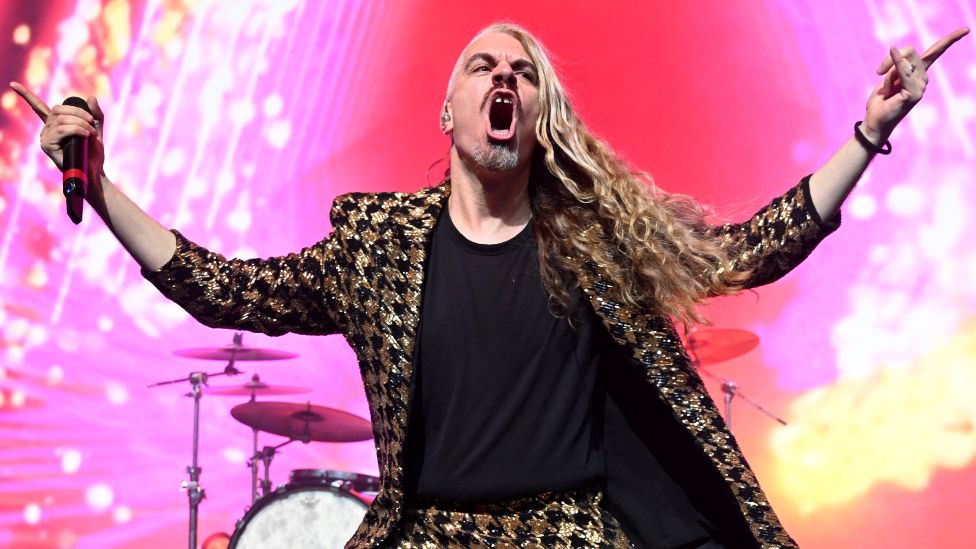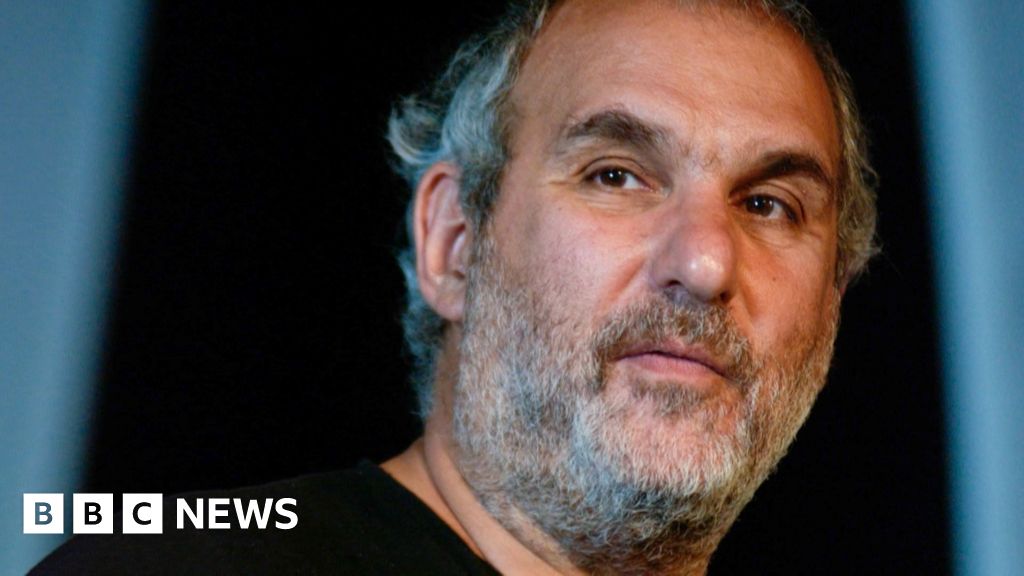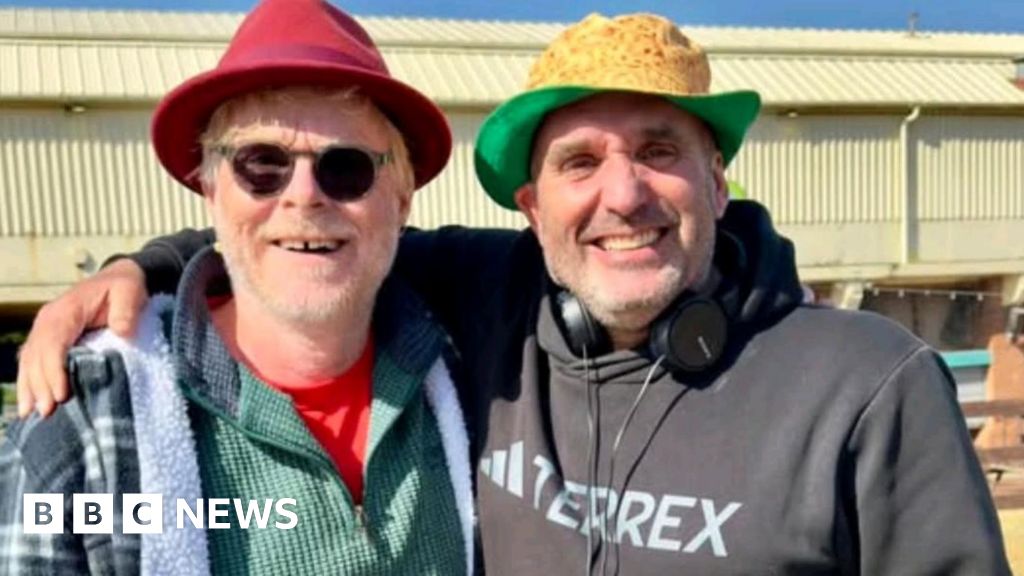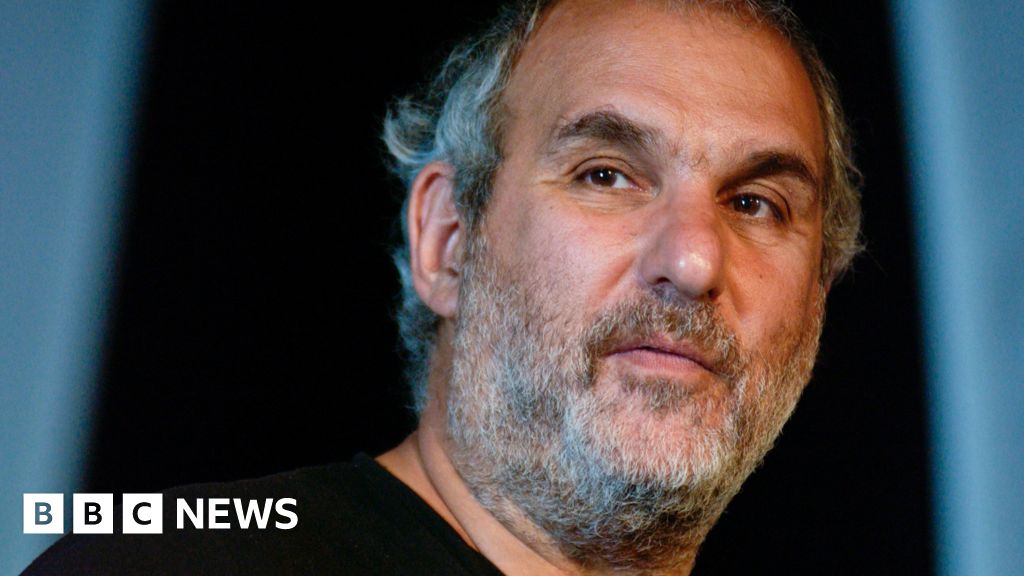ARTICLE AD BOX
 Image source, Getty Images
Image source, Getty Images
Australian rockers Voyager close the show on Thursday night
By Daniel Rosney
Eurovision reporter
Two days after the dramatic first semi-final, the second knock out stage of this year's Eurovision Song Contest comes live from Liverpool on Thursday evening.
Sixteen countries will compete for 10 places in Saturday night's grand final.
Tuesday night's show, hosted by Alesha Dixon, Hannah Waddingham and Ukrainian singer Julia Sanina, had a peak of 3.4m viewers.
It will be again down to viewers to decide who can belt out a tune, whose dance moves are the best and which staging and costumes impress.
Ukraine qualify for the final after Kalush Orchestra won the contest last year. France, Spain, Germany, Italy and the UK are also through because they pay more to the EBU, which organises the contest.
What to look out for tonight
The show's opener Denmark will be familiar to at least 10 million people as Reiley has amassed a huge following on TikTok. That could be handy for him as it's entirely down to the public who qualifies.
Image source, Sarah Louise Bennett/EBU
Image caption,Reiley is from the Faroe Islands - a self-governing nation under the sovereignty of Denmark
Tuesday's semi-final had performances from some of the bigger hitters in this year's competition.
According to the bookies, none of the major favourites to win will be on stage this evening - but the artists are determined to prove them wrong.
Gustaph from Belgium will deliver a 1980's vogue-inspired feel good track which Eurovision fans will lap up.
This year feels somewhat like the battle of the bands.
There are a handful competing in Liverpool - the city which raised The Beatles.
Joker Out hope being the biggest selling band in their home nation, Slovenia, will give them the stage presence to get them through to the final.
Image source, Chloe Hashemi/EBU
Image caption,Bojan Cvjetićanin leads the five-piece band Joker Out
It's a harder qualifying round to predict than the first one - anything could happen here.
Who the hell is Edgar?
One of the unlikeliest inspirations for a Eurovision song, not love, or loss, but a literary reference, will come from Austria as Teya and Salena belt out Who The Hell Is Edgar?
Image source, Sarah Louise Bennett/EBU
Image caption,Teya & Salena's dance routine will be one fans join in with at home
It's their take on the 19th Century American writer Edgar Allan Poe, while highlighting their frustration with what songwriters are paid by streaming services in the music industry.
How does the semi-final work?
The show starts at 20:00 BST and, after all 16 acts perform, voting lines open.
In a change to the rules this year, the decision rests entirely with the public. Votes from the national juries only come into play for Saturday's final.
This year a "rest of the world" vote has been introduced so countries not participating can have their say. Those votes will be added up to come from one extra country. And added to those from participating countries.
The results are delivered in a different way to the final - there is no bounce around Europe for votes. The acts are simply told who is going through.
What you won't see on TV
Watch the quick stage changes at Eurovision
What the cameras won't capture tonight are the talented stage technicians who have choreographed in a month how to change the stage setup between performances in less than 60 seconds.
As well as three televised shows, fans have been able to get tickets for six rehearsals, with tickets set aside for Ukrainians living in the UK. Their flags waved proudly.
It's the first time two countries have jointly hosted Eurovision, and if show one is anything to go by, we're in for a gripping week.
All the build-up, insights and analysis is explored each week on the BBC's Eurovisioncast.
Eurovisioncast is available on BBC Sounds, or search wherever you get your podcasts from.

 2 years ago
67
2 years ago
67








 English (US) ·
English (US) ·